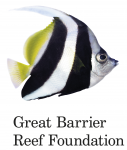Sustainable Tourism
Introduction
The following is a summary of content developed and lessons learned through Resilient Reefs Initiative’s 2021 Solution Exchange on sustainable tourism.
The Resilient Reefs Initiative (RRI) is a global initiative to support UNESCO World Heritage-listed coral reefs and the communities that depend on them to adapt to climate change and local threats. The Initiative partners on the design and delivery of integrated solutions that build the resilience of coral reefs and the communities that depend on them. The work is led and delivered by local partners and is informed by global experts and the best available science. RRI is piloting work with communities in four UNESCO World Heritage reef sites: Ningaloo Coast, Australia; Lagoons of New Caledonia: Reef Diversity and Associated Ecosystems, France; Belize Barrier Reef Reserve System; and Rock Islands Southern Lagoon, Palau.
Established by the Great Barrier Reef Foundation in 2019, RRI is a collaboration with The Nature Conservancy’s Reef Resilience Network, Columbia University’s Center for Resilient Cities and Landscapes, Resilient Cities Catalyst, UNESCO, and AECOM. The program is enabled by the BHP Foundation.
Each year, RRI brings together its diverse network of partners for a Solution Exchange, either an online or in person workshop designed to: accelerate understanding of a common resilience challenge; share and discuss leading science and practice on the topic; and support each site in diagnosing opportunities for local action. The 2021 Solution Exchange was on sustainable tourism.
Key content and resources from the Solution Exchange on sustainable tourism are highlighted on these pages. For three topics you will find recordings of expert presentations, key takeaways from discussions, and a summary of how this topic touches down in three of the RRI sites. Links to additional resources and examples are also included.
Importance of Sustainable Tourism
Coral reefs provide food and livelihoods for nearly one billion people, with many being from vulnerable communities. They act as barriers against the worst impacts of storms, therefore protecting the shoreline, infrastructure, and millions of people who live along coasts. Tourists come specifically to snorkel and dive the reefs, or for tropical beach vacations which include water and boating activities that are made possible because of the coral reef. The pre-COVID-19 economic contribution of coral reefs to global and local economies was around US$36 billion/year (Spalding et al. 2017), with some revenue being directed by governments into conservation of reef sites. Protecting coral reefs is therefore not just ecologically important, it is also important to the economy of countries.
Tourism dependence varies dramatically across the RRI sites. While some RRI sites are looking to grow and leverage the tourism industry (e.g., New Caledonia), others are looking to reduce dependence on tourism, and in particular reef-dependent tourism to take pressure off the natural resource (e.g., Belize). The tourism hiatus caused by the COVID-19 pandemic exposed the reliance some RRI sites have on tourism and presented a unique opportunity to explore strategies to increase the resilience of the local tourism sector by implementing sustainable tourism practices. The pandemic impacted each RRI site differently (discussed in Spotlight sections), however, implementing methods of sustainable tourism at reef sites is imperative to reduce the negative effects of tourism activities on the reef, local communities, and their economy.
But how do reef managers achieve sustainable tourism? How can we develop sustainable tourism plans that are adaptable to the unique and changing circumstances at local reef sites, that also benefit people’s livelihoods and income and continue to generate income that supports conservation?
To address these questions, three topics were explored during the Solution Exchange and are outlined in the following pages:
- Identifying and managing tourist numbers through the use of models
- Strategies for shifting tourist behavior to better meet local resilience goals
- Understanding the local tourism sector and identifying opportunities for diversifying livelihoods
 This content was developed in collaboration with Great Barrier Reef Foundation.
This content was developed in collaboration with Great Barrier Reef Foundation. 